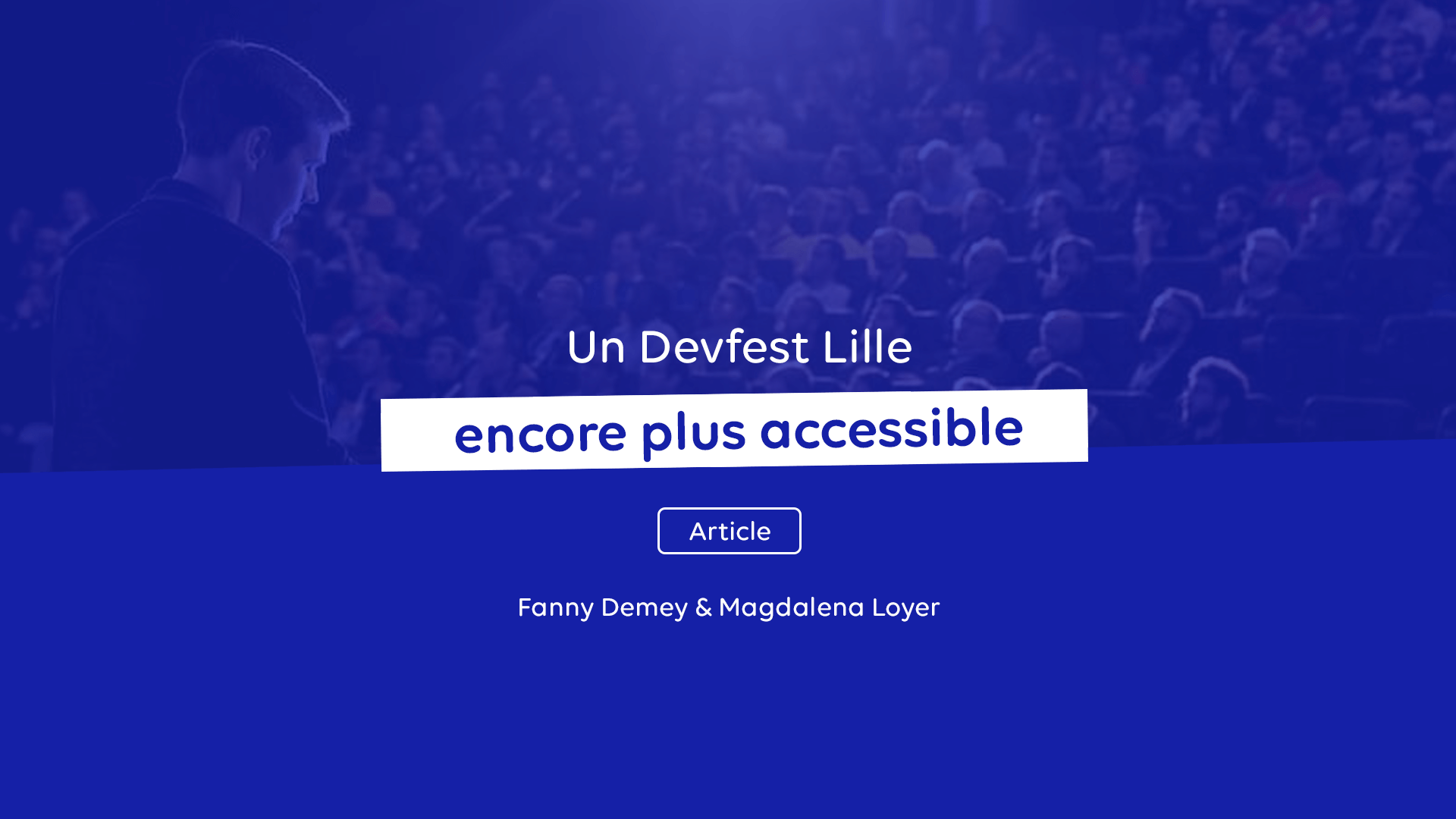the Devfest Lille returns on November 19. For this somewhat special post-covid edition, we take the risk of getting angry with the conference T-shirt collectors. Because yes this year, we are devoting the budget initially planned for goodies, to make our event more accessible.
Why accessibility? It is essential for us to create an inclusive community. However, one in five people has a disability or will be at least once in their life. It therefore seems obvious to us to include these people in the same way as able-bodied people during our event. It is also important for us to educate our community on disability because today the inaccessibility of digital tools contributes to the exclusion of people with disabilities in their education and employment. So at our level, we decided to help improve the situation.
But in fact, what does that mean to make Devfest Lille more accessible?
With this article, we would like to share with you the actions we have taken, but also our discoveries because we are far from being experts on this subject.
Our concern for accessibility to Devfest Lille started long before 2021. For example, our websites are accessible thanks to the work of Angela Ricci. In 2019, we also highlighted the conference of Joffrey Leveugle on digital accessibility. Finally, we take care to add an alternative text to all our communications which are accompanied by visuals on social networks (Think about it!).
But there is still work to be done, especially regarding the accessibility of our event on D-Day. This year we have taken a new step forward by making our event accessible to deaf and hard of hearing people. It’s a complex issue and a few organizers of events similar to ours have started before us (MixIT, Forum PHP Paris). They were able to study the different solutions available. We spoke with them to benefit from their experience before launching ourselves.
It was after a call with the MixIT team that we realized that it was still a young subject within tech conferences in France and that we had work to do. The first difficulty which then arises before us is to understand the solutions in place: Velotype, automatic transcription, French sign languages (called LSF)… What does this correspond to? Which of these solutions is best suited to our event? How does this fit technically? What solution will be able to interpret our technical jargon? How much does it cost ?
We thus discover that velotype is a text input technique allowing to write at the speed of speech thanks in particular to a special keyboard. Becoming a velotypist requires several years of training, which also explains the high cost of setting up this type of solution.
There are also tools on the market that automatically generate captions using voice recognition and AI. We discovered in particular AVA, which offers various solutions for captioning remote or face-to-face conferences as well as everyday conversations.
Finally, we learn that French Sign Language (LSF) is not necessarily known to all people with hearing loss. In addition, the frequent use of Anglo-Saxon terms in our jargon represents an additional difficulty. We therefore discard this solution to devote ourselves to the captioning of our conferences.
We finally chose a solution combining automatic generation and velotyping thanks to our partner The Messenger. All of our conferences will benefit from live subtitling.
We now have one last step: spreading the message. For this point, we count on you to relay the information to your network and your company. Some also have “Mission Handicap” type programs. Please do not hesitate to send them this article. Moreover, although our ticket office has been sold out for a few weeks, we have reserved 30 seats for deaf or hard of hearing people. To benefit from one of these places, all you have to do is contact us by email: [email protected] and to ask for an “accessibility” place. We are counting on your honesty regarding the allocation of these places.
In conclusion, we would like to thank the employees of SFEIR, who thanks to a crowdfunding internally initiated by Jonathan Chauvin, contributed € 1,000 to the budget necessary for the implementation of this solution.
We look forward to seeing you all on November 19.
–

